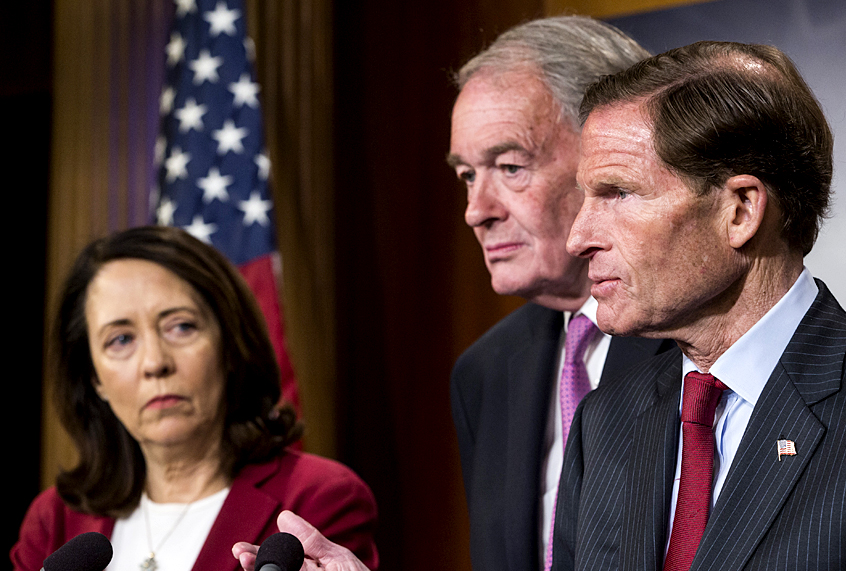When the Federal Communications Commission voted to repeal net neutrality rules, few were surprised. The issue was a partisan one, in which there was little hope of the left succeeding. The charge to end net neutrality was led by a few Republicans, like FCC Chairman Ajit Pai, who oversaw the committee, and the final 3-2 outcome fell along party lines among the FCC commissioners, who are appointed by presidents.
However, some Democrats have come together to attempt to use a congressional maneuver to overturn the FCC’s decision. Sen. Ed Markey, D-Mass., and 32 other Democrats have filed a discharge petition, which, under the Congressional Review Act, would allow for a Senate vote. With that vote, a simple Senate majority would restore net neutrality.
I just officially filed the petition to force a vote on #NetNeutrality on the Senate floor. A vote is imminent. Make your voices heard before it’s too late.#OneMoreVote pic.twitter.com/OR6OZ2aM8P
— Ed Markey (@SenMarkey) May 9, 2018
Reuters reported on Tuesday that the filing would happen on Wednesday, which it did. According to the report, 47 Democrats, two independents, and one Republican Senator — Susan Collins, R-Maine — are in support of reversing the rollback. If that’s true, supporters could win 50-49, counting the likely absence of Sen. John McCain, R-Ariz., due to his illness.
Yet if it does pass through the Senate, as Reuters reports, there will be additional obstacles for proponents of the measure to overcome. The measure would have to go through a vote in the House of Representatives — which is controlled by Republicans, so unlikely to pass — and then it would have to go to the Oval Office.
Still, the move is symbolic and important in and of itself. The widely-reported net neutrality rollback, which many thought would go into effect on April 23, was evidently a miscommunication. If and when it does go into effect, the end of net neutrality would mean that internet service providers could slow, speed or throttle the content that flows through their wires depending on their whims, theoretically giving some sites preferential treatment while limiting others.
President Donald Trump has long been an opponent of net neutrality rules. In 2014, he called the rules a “power grab” by former President Barack Obama.
Obama’s attack on the internet is another top down power grab. Net neutrality is the Fairness Doctrine. Will target conservative media.
— Donald J. Trump (@realDonaldTrump) November 12, 2014
That was the year Obama passed an order that classified the internet as a Title II entity under the Communications Act, which ultimately established restrictions for internet providers that inhibited them from blocking content, accessing content and throttling internet content — which is when ISPs (Internet service providers) intentionally slow (or speed) a specific internet service. As Obama explained during the initial debate a few years ago, “no service should be stuck in a ‘slow lane’ because it does not pay a fee.”
The U.S. has 62 ISPs, including big names like AT&T Wireless, Sprint, T-Mobile, Xfinity (a Comcast product) and U.S. Cellular.
Democrats aren’t the only ones rooting to reverse the rollback, though.
Major internet websites, such as Reddit, Pornhub and Tumblr, are supporting the upcoming Senate vote with a new publicity campaign, which has been splashing red banners across the internet.

